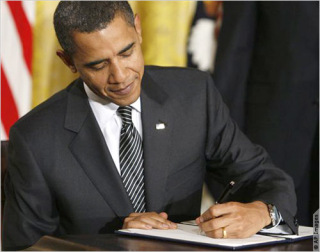In March when President Barack Obama put forward a new strategy for the Afghan War involving a significant escalation, there was little public opposition. Newly elected and promising to unite the international community behind the war, it was an easy sell despite seven years of failure.
 But just five months later Admiral Mullen is talking about “starting over” in the war torn nation, and General Stanley McChrystal is now offering yet another “new strategy” with yet another new escalation, another 20,000 troops beyond what Obama has already sent.
But just five months later Admiral Mullen is talking about “starting over” in the war torn nation, and General Stanley McChrystal is now offering yet another “new strategy” with yet another new escalation, another 20,000 troops beyond what Obama has already sent.
It’s not exactly a great time for the president to try to sell, with record violence in the nation and polls showing opposition to the war at an all time high. Many in Congress, with an eye toward capitalizing on the war exhaustion in 2010’s elections, are talking about timelines for an end to the disastrous war, which President Obama has sought to make the centerpiece of his foreign policy.
That international support has also largely dried up. Much of NATO is looking to cut back the size and scope of their involvement and Britain, whose Labor Party is widely expected to lose the next election, seems about the only nation still willing to ignore massive domestic opposition to continue adding troops to the conflict.
Though it seems unlikely that the Obama Administraiton will really consider paring back its commitment to all-out war in the nation, regardless of cost and death tolls, it does seem like the days of escalation without political opposition are over.


